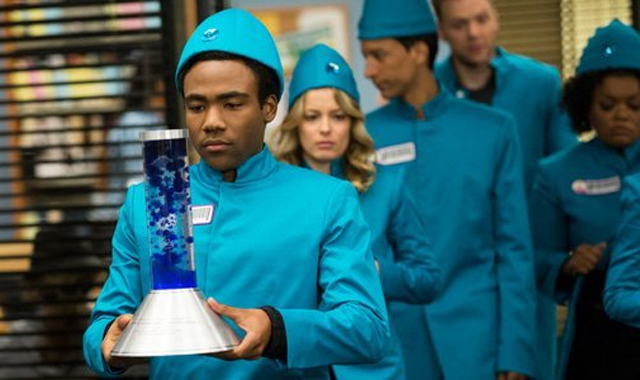Imagine for a moment that you live about 10,000 years ago. You probably live with a small tribe of fellow hunter-gatherers. Perhaps your tribe has discovered a rudimentary agriculture.
Death is all around you. You watch as your children and parents and friends die. Some just never wake up. Some are seriously injured and die in pain. It’s quickly obvious that those people that die don’t come back. You don’t see them again… ever.
I suspect that those people felt the same as we do now. I greatly miss my grandfather. When I spot to look at his WWII medals and picture, I still get a little snuffly thinking about him. He’s been gone for over a decade now and there’s nothing in this universe that can replace him.
From the beginning, our earliest ancestors who recognized death and had an emotional response to it, we have probably wondered… what happened to them?
Feeling such a close connection with a dear loved one, we can’t help but wish we could see them again. Being a modern human, many of our species can’t help but feel that we are somehow special. That thing that makes us special must not be intrinsic to the body or other animals would be like that (they are) and so it may be something that can survive after death.
Combine these basic fears, desires, and primitive logic with a group who sought to control others and we get the idea of a soul. A part of us that lives on in an afterlife (hopefully being the saxophone player in an all-girl cabaret in New Orleans). An afterlife where we will see our loved ones again. Where all the trials and troubles of our life will disappear and there will be no pain, no suffering, no fear.
It’s a pretty powerful message.
It’s also false.
Everything that we are, everything that we perceive is nothing more than chemical reactions in the cells of our brain. This is easy to show to be true.
A quick search of the literature find many research reports of changes in personality (some permanent) following traumatic brain injury. The research on this goes back a long way. Examples:
-
Longitudinal Study of Emotional, Social, and Physical Changes after Traumatic Brain Injury
-
Psychiatric disturbances after traumatic brain injury: Neurobehavioral and personality changes
What these articles tell us is that, things like personality are directly related to the brain, chemistry or architecture. We know that drug use can alter the personality (and memories). We know that hormone changes in other parts of the body can have an effect on personality (generally short term). Heck, I get grumpy if I don’t eat. Give me some stress and deny me a meal and I’m a complete asshole.
Who we are is directly tied to our bodies. Remove the body and we can’t be us anymore. This is one reason I don’t see us being able to upload consciousness to computers anytime soon. It’s not just the brain.
When we die our brain is the first and easiest to get permanent damage. Limbs can be reattached successfully after several hours (this source suggests even a full day), even in warm temperatures.
But the brain, the brain starts to fail in as little as twenty minutes without a constant blood flow, but recovery past 3-5 minutes is complex. Certain medical procedures and drugs can extend that time to maybe another 10 minutes before unrecoverable brain damage occurs. Cats and dogs, under laboratory conditions, have come back to life after an hour of no oxygen to the brain.
The point is that we are our brain. We are not a soul. We are not some kind of supernatural entity just living in a body for a time. Our brain energy can’t be stored in a lava lamp.

When we die… that’s it. That’s the end.
That’s super depressing…
No it’s not. It’s amazing.
We don’t have to try to live up to someone/something else’s ideals of what we should be. We can be free to be ourselves. We can do things that we want to do.
It’s like Minecraft. There’s no story in Minecraft. It’s just you, living in the world. You can explore. You can build a house. You can build an exact replica of 18th century Paris. You can do anything that you want to.
Write the damn book. Talk to that cute girl. Go to France. Figure out what you love and do it. Become awesome.
What has become important to me is making a difference. I won’t be remembered by many people when I’m gone. But I know that my work has directly affected millions of people over the last decade. They may not remember me or even know who I am, but they are better people because of what I’ve done.
How much more of a legacy could anyone want?
I don’t want to die. I like being alive. But I don’t fear death like I did when I was younger.
